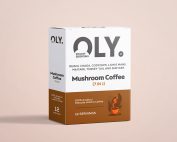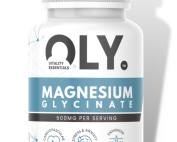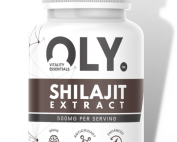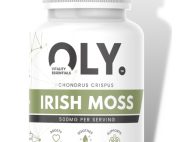Beneath the surface of our vast oceans, lies a treasure trove of nature’s unsung heroes. One such oceanic marvel is kelp, a type of seaweed that has been a staple of marine life for centuries. However, beyond its preeminent use as food, researchers have discovered that kelp is also a promising nutraceutical- a compound with potent medicinal properties. Its potential health benefits range from immune modulation to cancer prevention. This article delves into the seas’ secret, unlocking the nutraceutical potential of kelp and how it could revolutionize the pharmaceutical industry.

1. “Unlocking the Hidden Treasures of the Sea: Exploring the Nutraceutical Potential of Kelp”
Kelp is a type of seaweed that is commonly found along coastlines around the world. For centuries, kelp has been used in traditional medicine for its numerous health benefits. However, modern research has revealed that kelp is also a rich source of bioactive compounds known as nutraceuticals, which have potential applications in the pharmaceutical, nutraceutical, and cosmetic industries.
One of the most promising nutraceuticals found in kelp is fucoidan, a sulfated polysaccharide that has been shown to have potent antitumor, immunomodulatory, antiviral, and antioxidant properties. Fucoidan has also been found to promote skin health by increasing the production of collagen and elastin, two essential proteins that keep the skin firm and elastic.
Another bioactive compound found in kelp is fucoxanthin, a carotenoid pigment that has been shown to have anti-obesity and anti-diabetic effects. Fucoxanthin has been found to increase the metabolism of fat cells and reduce the accumulation of abdominal fat, making it a potential treatment for obesity-related disorders. Additionally, fucoxanthin has been found to have anti-inflammatory and antioxidant properties, which may be beneficial for preventing and treating various chronic diseases.
Kelp is also a good source of iodine, a mineral that is essential for the production of thyroid hormones. Adequate intake of iodine is necessary for maintaining proper thyroid function, which plays a critical role in regulating metabolism, growth, and development. However, excessive intake of iodine from kelp supplements can lead to thyroid dysfunction and other adverse effects, so it is important to consume kelp in moderation.
In conclusion, kelp is a treasure trove of nutraceuticals that have numerous health benefits. From fucoidan to fucoxanthin to iodine, kelp offers a wide array of bioactive compounds that have potential applications in various fields. With further research, kelp may become a key player in the nutraceutical industry, unlocking new opportunities for improving human health and wellbeing.
2. “From Seaweed to Superfood: The Many Health Benefits of Kelp’s Natural Compounds”
Kelp, also known as seaweed, is a type of brown algae that has been widely used in traditional medicine for centuries. It is packed with an array of vitamins, minerals, and other natural compounds, making it a potent superfood with numerous health benefits. In this post, we will explore the many health benefits of kelp’s natural compounds.
1. Rich in Iodine:
One of the most significant benefits of kelp is its high iodine content. Iodine is an essential micronutrient that plays a vital role in thyroid function and hormone regulation. It helps prevent goiter, promotes healthy metabolism, and enhances overall brain function. Just a small amount of kelp can provide your body with the necessary daily intake of iodine.
2. Promotes Weight Loss:
If you are looking for a natural way to shed those extra pounds, kelp can be your best bet. Kelp is low in calories but high in fiber, which helps to keep you full for longer and prevents overeating. It also boasts of fat-burning compounds like fucoxanthin that promote weight loss by increasing metabolism and burning fat.
3. Anti-inflammatory Properties:
Kelp contains natural anti-inflammatory compounds like fucoidan and laminarin that help to reduce inflammation in the body. Inflammation is the root cause of many chronic diseases like arthritis, heart disease, and cancer. By reducing inflammation, kelp can improve overall health and prevent the onset of these diseases.
4. Boosts Immune System:
Kelp is also a potent immune booster, thanks to its high content of vitamins C and E, which are powerful antioxidants that scavenge free radicals that cause cell damage. Kelp also contains natural antibacterial and antiviral compounds that help to fight off infections and illnesses.
5. Improves Skin and Hair Health:
Kelp is an excellent source of natural compounds like iron, zinc, and biotin, that help to improve skin and hair health. These compounds promote healthy hair growth, prevent hair loss, and improve skin elasticity by increasing collagen production.
Overall, kelp is a potent superfood that boasts of many health benefits. Whether you are looking to boost your immune system, promote weight loss, or improve skin and hair health, kelp is worth adding to your diet. So, why not try incorporating kelp into your meals and start reaping the many health benefits of its natural compounds today?
3. “Diving into the Science: Understanding the Chemical Composition of Kelp Nutraceuticals”
Have you ever wondered what makes kelp a popular health supplement? Scientists have looked into the chemical composition of kelp, and here’s what they found out.
The Macronutrients
- Carbohydrates: Kelp is rich in carbohydrates. It has a unique polysaccharide called laminarin that supports the immune system.
- Protein: Kelp has up to 15% protein content. This makes it an excellent source of essential amino acids.
- Fatty acids: Kelp has high levels of essential fatty acids such as omega-3s, which are essential for heart health and brain function.
The Micronutrients
- Vitamins: Kelp is known to be a rich source of vitamins, A, C, E, and K.
- Minerals: Kelp is a rich source of minerals such as iodine, selenium, calcium, magnesium, and iron, which have various health benefits. Iodine is especially important for thyroid function.
Kelp Phytochemicals
Kelp also contains many unique and powerful natural compounds called phytochemicals, which have various health benefits.
- Fucoidan: Fucoidan is a complex polysaccharide found in kelp that has very strong antioxidant and anti-inflammatory properties. It is also known to support the immune system and prevent certain types of cancer.
- Alginate: Alginate is another polysaccharide found in kelp that is known to promote satiety and control appetite. Alginate also has impressive prebiotic properties, by promoting the growth of healthy gut bacteria.
- Halogenated compounds: Kelp contains various halogenated compounds, such as phlorotannins and bromophenols, which have antimicrobial, anticancer, and anti-inflammatory effects.
Overall, the chemical composition of kelp makes it a very nutritious and essential health supplement. Its unique combination of macronutrients, micronutrients, and phytochemicals are responsible for its health benefits. If you’re looking for a natural and safe health supplement, kelp nutraceuticals should be a top choice.
4. “Kelp as a Key to Wellness: Essential Nutrients and Bioactive Compounds for Optimal Health”
Kelp is a type of seaweed that is packed with essential nutrients and bioactive compounds, making it an excellent food source for optimal health. This seaweed is widely consumed in many parts of the world and is known for its numerous health benefits.
Essential Nutrients Found in Kelp
Kelp is a rich source of essential minerals such as iodine, calcium, magnesium, potassium, and iron. It contains high amounts of vitamins such as vitamin C, vitamin K, vitamin B2, and vitamin B9. Kelp is also an excellent source of dietary fiber and contains a low amount of calories, making it an ideal food choice for individuals looking to maintain a healthy weight.
Bioactive Compounds Found in Kelp
Kelp contains a wide range of bioactive compounds, including fucoidan, laminarin, and alginates. Fucoidan is a type of sulfated polysaccharide that is known for its antioxidant and anti-inflammatory properties. Laminarin is a type of beta-glucan that has been shown to improve immune function and reduce the risk of chronic diseases. Alginates are a type of soluble fiber that has been found to promote gut health and improve digestion.
Health Benefits of Kelp
Kelp has been shown to offer numerous health benefits, including improving thyroid function, reducing inflammation, promoting healthy digestion, and reducing the risk of chronic diseases such as cancer, heart disease, and diabetes. Kelp may also help to boost cognitive function, improve mood, and enhance overall wellness.
How to Incorporate Kelp into Your Diet
There are many ways to incorporate kelp into your diet, such as adding it to soups, salads, and stir-fries. Kelp can also be used as a seasoning for dishes such as sushi and miso soup. Kelp supplements are also available for individuals who prefer not to consume seaweed directly.
Overall, kelp is an excellent food source for optimal health due to its rich nutrient profile and numerous health benefits. Consider incorporating kelp into your diet to support your overall wellness.
5. “The Future of Nutraceuticals: Harnessing the Untapped Potential of Kelp for Human Health and Well-being
In recent years, the use of natural products in the form of functional foods, nutraceuticals, and supplements has gained popularity due to their potential health benefits. Kelp, commonly found in coastal regions, has emerged as a potential nutraceutical with various health-promoting effects. It is a rich source of vitamins, minerals, polysaccharides, and polyphenols, bioactive compounds that are known to have various pharmacological properties.
1. Antioxidant potential: Polyphenols present in kelp act as powerful antioxidants, which protect the body from the damaging effects of free radicals, which have been linked to chronic diseases such as cancer, Alzheimer’s and cardiovascular diseases.
2. Anti-inflammatory effects: Kelp contains polysaccharides, which have immune-stimulating properties and can suppress inflammation. Inflammation has been linked to the development of several chronic diseases such as arthritis, diabetes, and cancer.
3. Anti-obesity effects: Kelp contains a compound called fucoxanthin, which has been shown to have anti-obesity effects. Fucoxanthin promotes the production of a protein that increases the body’s ability to burn fat, thereby reducing body weight and preventing obesity-related diseases.
The potential health benefits of kelp are still being studied. However, with further research, kelp has the potential to become a new generation of nutraceuticals with the ability to prevent and treat several chronic diseases. Kelp‘s potential as a nutraceutical has been an ongoing study due to its various health benefits. From reducing inflammation to regulating thyroid function, this unique seaweed species could be the key to unlocking improved health for many individuals. As we continue to learn more about the many nutrients kelp offers, we may see more supplements and products containing kelp available in the market for our benefit.
Frequently Asked Questions:
Q: Are kelp supplements safe?
A: Yes, kelp supplements are safe when taken in the recommended doses. However, excessive use of kelp supplements may cause iodine toxicity, which could have negative effects on thyroid function.
Q: Can kelp supplements improve thyroid function?
A: Kelp is a rich source of iodine, which is essential for thyroid hormone production. Therefore, kelp supplements could help improve thyroid function in individuals who are deficient in iodine.
Q: Can kelp supplements help with weight loss?
A: Some studies suggest that kelp supplements may have a beneficial effect on weight loss by reducing food intake and promoting fat burning. However, more research is needed to confirm these effects.
Q: Are kelp supplements vegan?
A: Yes, kelp supplements are vegan since they are derived from seaweed, which is a plant-based source.
Q: Can kelp supplements interact with other medications?
A: Kelp supplements may interact with certain medications, such as blood thinners, as they contain high amounts of iodine. Therefore, it is important to consult with a healthcare professional before taking kelp supplements if you are on any medication.







